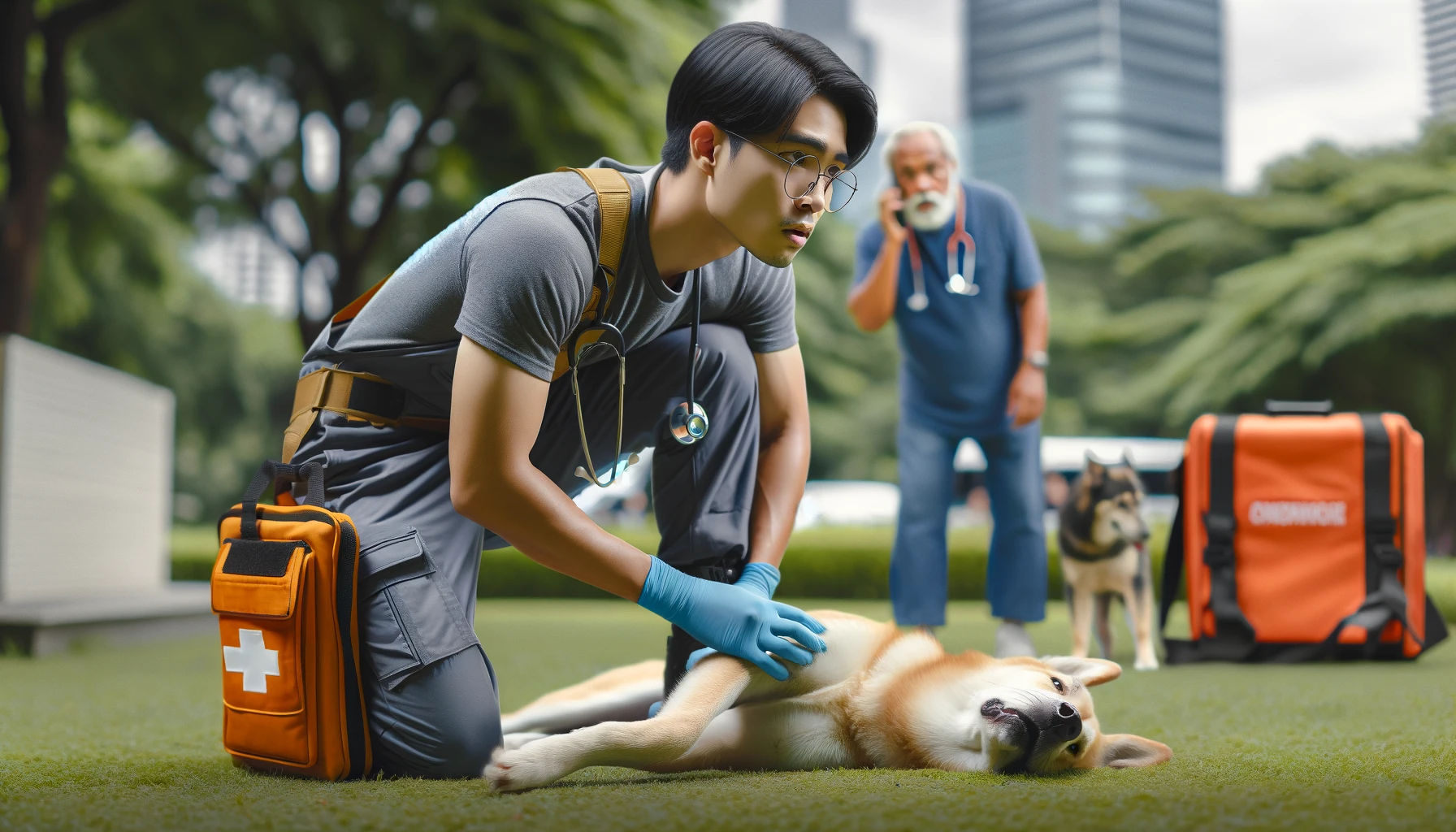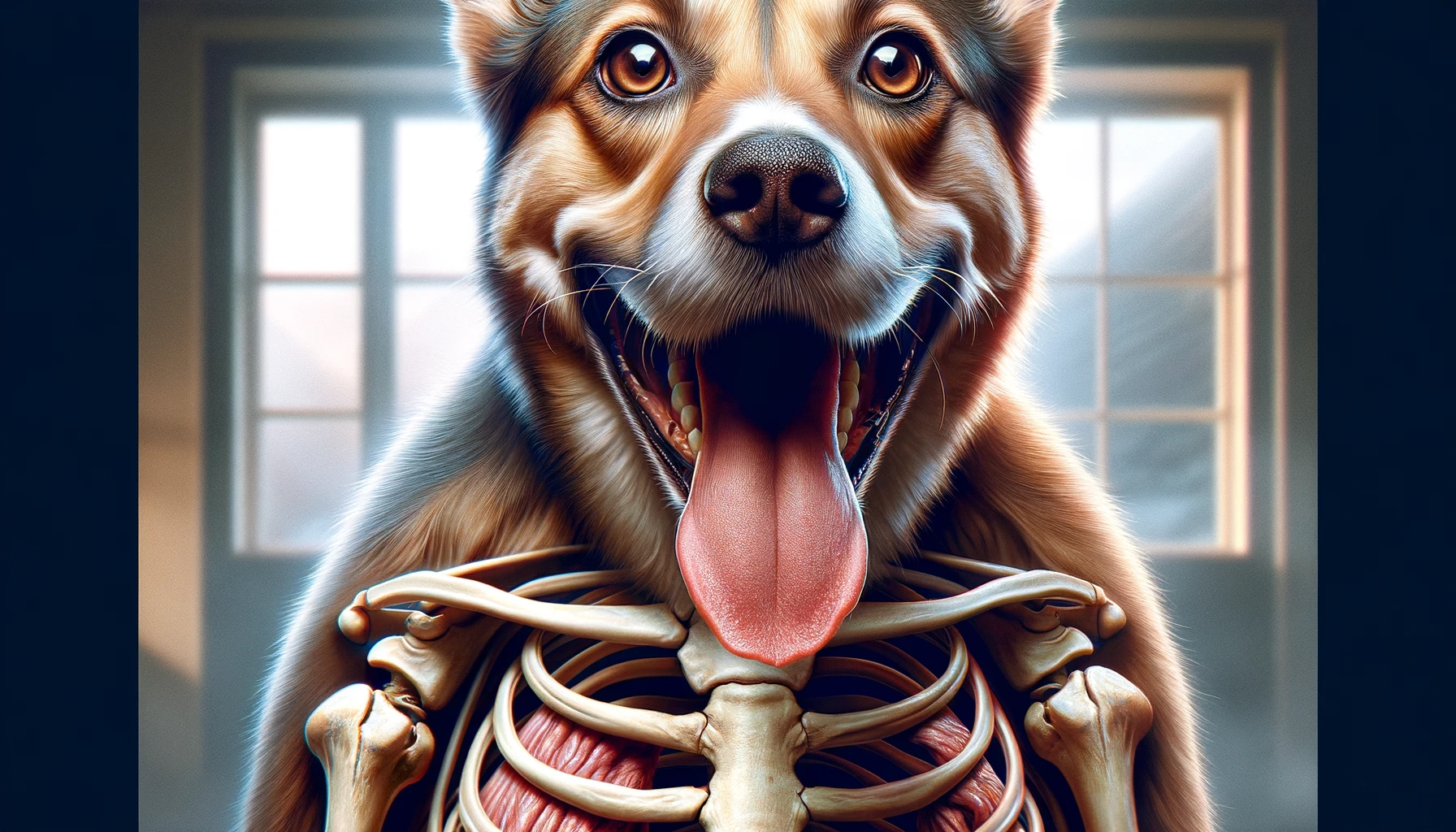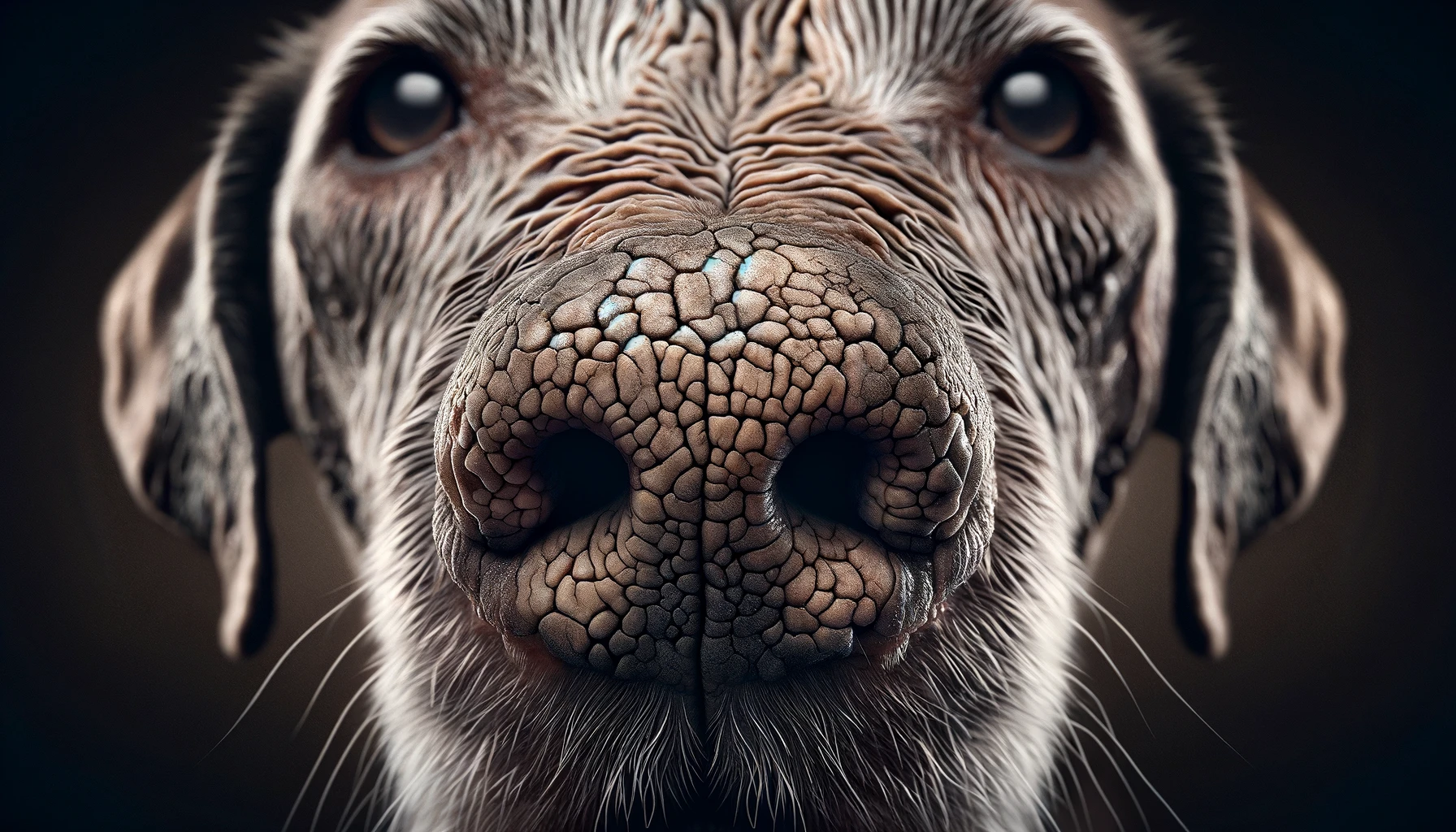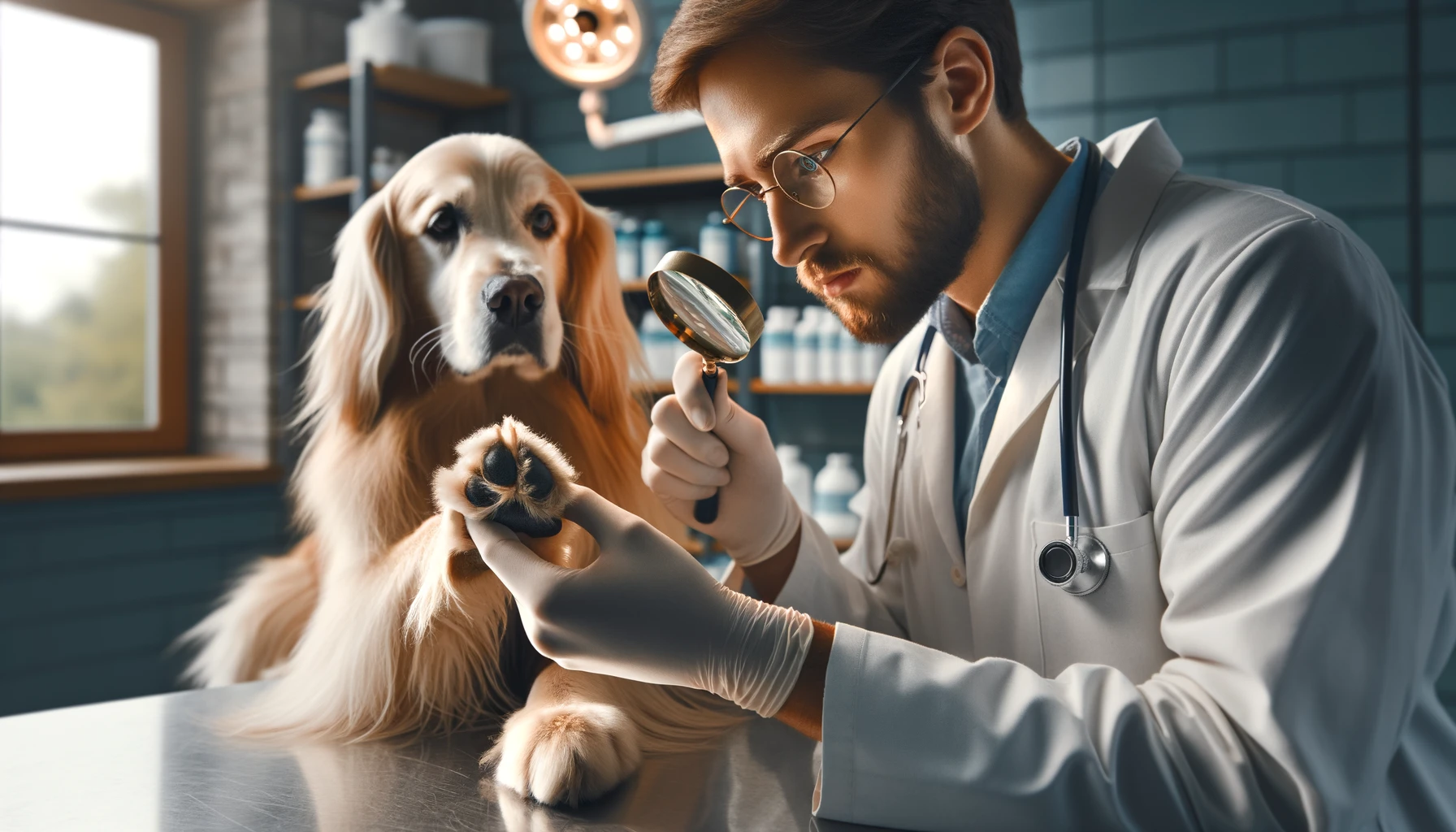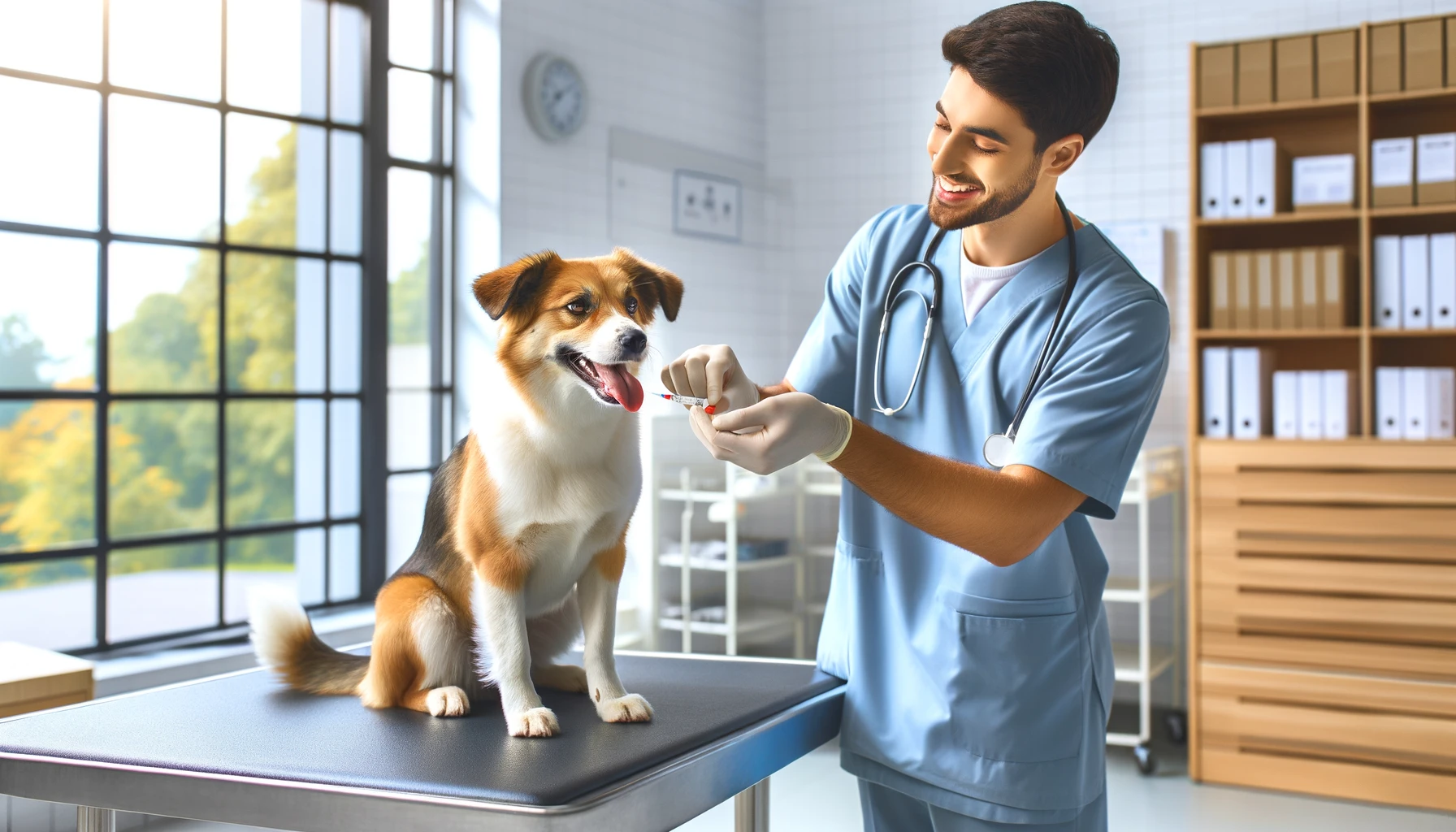Are you looking for ways to improve your dog's health? Look no further! In this article, we'll share with you 10 essential tips that will ensure your furry friend stays happy and healthy.
From providing a balanced diet and regular exercise to scheduling routine vet check-ups and maintaining dental health, we've got you covered.
By following these simple tips, you'll be able to give your dog the care they deserve and enjoy many happy years together.
Key Takeaways
- Provide a balanced diet with proteins, carbohydrates, fats, vitamins, and minerals
- Regular exercise maintains healthy weight and prevents obesity
- Proper hydration is essential for your dog's body to function properly
- Regular brushing prevents dental issues like plaque buildup and gum disease
Balanced Diet
To maintain your dog's health, it's important to consistently provide them with a balanced diet. Dog food plays a crucial role in ensuring your furry friend receives the necessary nutrients for optimal health and vitality. A balanced diet refers to a combination of proteins, carbohydrates, fats, vitamins, and minerals that meet your dog's specific nutritional needs.
When selecting dog food, it's essential to consider the nutrient balance. Different breeds, ages, and activity levels require different nutrient profiles. For example, puppies need higher levels of protein and fat to support their growth and development, while senior dogs may benefit from lower-calorie options to maintain a healthy weight.
Look for dog food that's labeled as complete and balanced, as this ensures it contains all the essential nutrients your dog needs. Read the ingredient list and make sure that high-quality protein sources, like chicken or beef, are listed first. Avoid dog foods that contain excessive fillers, artificial additives, or by-products.
Remember to consult with your veterinarian to determine the optimal feeding schedule and portion sizes for your dog. They can provide personalized recommendations based on your dog's age, breed, weight, and overall health.
Regular Exercise
Get your dog moving with regular exercise to keep them healthy and happy. Regular exercise is important for dogs of all ages and breeds. Here are three reasons why exercise is essential for your furry friend:
- Physical health: Regular exercise helps maintain a healthy weight for your dog, preventing obesity and related health issues such as diabetes and joint problems. Outdoor activities like walking, running, or playing fetch at the dog park allow your dog to burn off excess energy and keep their muscles strong.
- Mental stimulation: Dogs need mental stimulation just as much as physical exercise. Taking your dog to the dog park or engaging in outdoor activities provides them with new sights, smells, and experiences. This helps keep their mind sharp and prevents boredom, which can lead to destructive behaviors.
- Socialization: Regular exercise in a dog park or during outdoor activities allows your dog to interact with other dogs and people. This helps improve their social skills and reduces the chances of them developing fear or aggression towards unfamiliar animals or humans.
Remember, different breeds have different exercise needs, so consult with your veterinarian to determine the appropriate amount and type of exercise for your dog.
Regular exercise not only keeps your dog healthy, but it also strengthens the bond between you and your furry companion.
Adequate Hydration
Ensure that your dog stays properly hydrated to maintain their overall health and well-being. Adequate hydration is essential for your dog's body to function properly. Dehydration can lead to serious health issues, so it's important to take steps to prevent it.
One way to prevent dehydration is by monitoring your dog's water intake. Make sure they have access to fresh, clean water at all times. Keep an eye on their water bowl and refill it regularly. During hot weather or periods of increased activity, your dog may need more water than usual. Be sure to provide extra water during these times to keep them properly hydrated.
You can also encourage your dog to drink more water by adding a bit of flavor to it. Some dogs prefer the taste of chicken or beef broth, which can make them more likely to drink. Another option is to feed them wet food, which has a higher water content than dry kibble. Additionally, you can try using a pet fountain or a water dispenser that keeps the water moving, as some dogs find this more enticing.
Vaccinations and Preventive Care
Make sure your dog receives regular vaccinations and preventive care to keep them healthy and protected from common diseases. Vaccinations are crucial in preventing various canine diseases and play a vital role in maintaining your dog's overall well-being. Here are three important points to consider when it comes to vaccinations and preventive care:
- Understand the vaccination schedules: Different vaccines are administered at different times in your dog's life. Puppies require a series of vaccinations to build immunity against diseases like parvovirus, distemper, and rabies. It's essential to follow the recommended vaccination schedule provided by your veterinarian to ensure your dog receives the necessary protection.
- Core and non-core vaccinations: Core vaccinations are those that are recommended for all dogs due to the severity and prevalence of the diseases they protect against, such as rabies and canine distemper. Non-core vaccinations may be recommended based on your dog's lifestyle and risk factors, such as exposure to ticks or frequent boarding. Consult with your veterinarian to determine which vaccines are necessary for your dog.
- Regular check-ups and preventive care: Along with vaccinations, regular veterinary check-ups are essential for your dog's overall health. During these visits, your veterinarian can assess your dog's specific needs and provide preventive care measures like parasite control, dental care, and nutrition advice. These preventive measures help ensure your dog remains healthy and protected from various diseases.
Dental Health
Take care of your dog's dental health to keep their teeth and gums in optimal condition. Just like humans, dogs can suffer from dental issues such as plaque buildup, gum disease, and tooth decay. Regular brushing is essential to prevent these problems and maintain good oral hygiene. Use a dog toothpaste specifically formulated for canines, as human toothpaste can be harmful to dogs if ingested. Brush your dog's teeth at least two to three times a week, starting slowly and gradually increasing the duration.
In addition to brushing, consider using dental chews to help clean your dog's teeth. Dental chews are specially designed to remove plaque and tartar while satisfying your dog's natural urge to chew. They can be a great addition to your dog's dental care routine. However, it's important to choose dental chews that are appropriate for your dog's size and chewing habits.
Remember to consult with your veterinarian for recommendations on the best dental care products for your furry friend. By taking care of your dog's dental health, you can ensure they've a healthy mouth and overall well-being.
Parasite Control
Keep your dog protected from parasites to maintain their health and well-being. Parasite prevention is an essential aspect of responsible pet ownership.
Here are three important tips for effective parasite control:
- Regularly administer flea control treatments: Fleas are a common parasite that can cause discomfort and transmit diseases to your dog. Use veterinarian-recommended flea control products to keep these pests at bay. Apply the treatment according to the instructions and maintain a consistent schedule to ensure maximum effectiveness.
- Keep your dog's living environment clean: Fleas and other parasites thrive in dirty and cluttered areas. Regularly clean your dog's bedding, toys, and living areas to minimize the risk of infestation. Vacuuming your home frequently can also help remove any flea eggs or larvae that may be present.
- Consult with your veterinarian for a comprehensive parasite prevention plan: Every dog is unique, and their parasite control needs may vary. Schedule regular check-ups with your veterinarian to discuss the most suitable parasite prevention options for your dog. They can recommend parasite control products, perform necessary tests, and offer guidance on preventative measures tailored to your dog's specific needs.
Mental Stimulation
To keep your dog mentally stimulated, interactive toys can be a great option. These toys provide mental engagement and prevent boredom.
Additionally, training sessions can also provide mental stimulation for your dog, helping to keep their mind sharp and active.
Interactive Toys for Stimulation
Engage your dog's mind with interactive toys for mental stimulation. These toys not only provide entertainment but also help keep your furry friend mentally sharp and engaged.
Here are three types of interactive toys that are particularly beneficial for stimulating your dog's mind:
- Scent-based toys: Dogs have an incredible sense of smell, and scent-based toys tap into this natural ability. These toys are designed to hold treats or have hidden compartments that release different scents when your dog interacts with them. It's a fun and challenging way for your dog to use their nose and problem-solving skills.
- Puzzle toys: Puzzle toys are great for keeping your dog mentally stimulated. They usually have hidden compartments or compartments that need to be opened in a specific way to reveal treats or toys. These toys require your dog to think and problem-solve, keeping their mind active and engaged.
- Interactive treat-dispensing toys: These toys are designed to hold treats and dispense them as your dog interacts with the toy. They can be filled with your dog's favorite treats or kibble, providing mental stimulation as they figure out how to get the treats out. This type of toy keeps your dog entertained and mentally engaged.
Training for Mental Engagement
Train your dog for mental engagement and stimulation by incorporating interactive games and tasks into their daily routine. Canine puzzles are a great way to challenge your dog's cognitive abilities and keep their mind sharp. These puzzles come in various forms, such as treat-dispensing toys or games that require problem-solving skills.
By encouraging your dog to figure out how to access the treats or solve the puzzle, you're providing them with mental stimulation and engagement.
Cognitive training is another effective method to keep your dog mentally active. This can involve teaching them new tricks, obedience training, or participating in activities that require them to think and problem-solve.
Regular Vet Check-ups
Make sure you schedule regular vet check-ups for your dog to ensure their ongoing health and well-being. Regular visits to the vet are crucial in maintaining your dog's health and detecting any potential issues early on.
Here are three reasons why regular vet check-ups are important:
- Preventive Medicine: Regular check-ups allow your vet to administer necessary preventive treatments such as vaccinations, flea and tick control, and heartworm prevention. These measures are essential in safeguarding your dog against various diseases and parasites.
- Early Detection: Many health conditions are easier to treat when detected early. During check-ups, your vet will conduct a thorough examination, including checking your dog's teeth, ears, eyes, and overall body condition. They may also perform blood tests or other diagnostic screenings to identify any potential health issues before they become more serious.
- Vet Recommendations: Your vet is a valuable source of information and advice regarding your dog's health and well-being. Regular check-ups provide an opportunity for you to discuss any concerns or questions you may have and receive personalized recommendations on nutrition, exercise, and other aspects of your dog's care.
Grooming and Skin Care
During regular vet check-ups, you should also pay attention to your dog's grooming and skin care. Proper dog grooming and skin care are essential for your pet's overall health and well-being. Regular grooming not only keeps your dog looking clean and tidy, but it also helps prevent skin issues and promotes a healthy coat.
Regular brushing is important to remove loose hair and prevent matting. It helps distribute natural oils throughout the coat, keeping it shiny and healthy. Additionally, brushing allows you to check for any signs of skin irritation, such as redness, bumps, or dry patches. If you notice any abnormalities, consult your vet immediately.
Bathing your dog should be done regularly, but not excessively, as it can strip the skin of its natural oils. Use a dog-specific shampoo and make sure to rinse thoroughly to avoid any residue that could irritate the skin. After bathing, dry your dog thoroughly to prevent dampness that can lead to skin infections.
It is also crucial to regularly check your dog's ears, eyes, and nails. Clean the ears with a gentle ear cleaner, check for any discharge or redness in the eyes, and trim the nails regularly to prevent overgrowth and discomfort.
Monitoring Weight and Body Condition
To ensure your dog's overall health and well-being, it's important to monitor their weight and body condition.
Maintaining a healthy weight range is crucial for preventing obesity-related health issues.
Regularly assess your dog's body visually and consider scheduling regular weigh-ins to track any changes.
Healthy Weight Range
Maintaining a healthy weight range for your dog involves regularly monitoring their weight and body condition. This is crucial for their overall well-being and can help prevent various health issues. Here are three key aspects to consider when it comes to your dog's weight management:
- Ideal Weight: Every dog breed has an ideal weight range that's considered healthy. It's important to consult with your veterinarian to determine what's the ideal weight for your specific dog. This will help you set a target weight and work towards achieving it.
- Regular Weigh-ins: Monitoring your dog's weight on a regular basis is essential. Weigh your dog at least once a month and keep a record of their weight. Sudden weight gain or loss can be a sign of an underlying health issue that needs to be addressed.
- Body Condition Scoring: Along with weight, it's important to assess your dog's body condition. Body condition scoring involves evaluating factors like the appearance and feel of your dog's ribs, waist, and overall muscle tone. This can help you determine if your dog is at a healthy weight or if adjustments need to be made to their diet or exercise routine.
Visual Body Assessment
When monitoring your dog's weight and body condition, it's important to visually assess their overall appearance and physical condition. This can be done by observing their body language and interpreting their behavior. Look for signs of overweight or underweight, such as a rounded belly or prominent ribs. Assess their muscle tone and overall body shape.
Additionally, observe their physical activity levels. Are they energetic and active, or do they seem lethargic and tired? Monitoring their physical activity is crucial in maintaining their overall health and weight. Regular exercise is essential for dogs to maintain a healthy weight and body condition.
Regular Weigh-Ins
Make it a habit to regularly weigh and assess your dog's body condition to ensure their overall health and well-being. Regular weigh-ins are crucial for weight management and can help you keep track of any changes in your dog's weight, which may indicate underlying health issues.
Additionally, monitoring your dog's body condition allows you to assess their overall fitness level and adjust their portion control accordingly. Here are three important reasons why regular weigh-ins are essential for your dog's health:
- Early detection of weight gain or loss: By regularly weighing your dog, you can quickly identify any fluctuations in their weight, allowing you to take necessary action to maintain a healthy weight.
- Prevention of obesity: Regular weigh-ins help you monitor your dog's weight and take appropriate measures to prevent obesity, such as adjusting their portion sizes and increasing exercise.
- Monitoring the effectiveness of weight management strategies: If your dog is on a weight management plan, regular weigh-ins can help you determine whether the current strategies are effective or if adjustments need to be made.
Frequently Asked Questions
What Are Some Common Signs of Dental Problems in Dogs?
If your dog has dental problems, some common signs to look out for include bad breath, swollen gums, and difficulty eating. To prevent these issues, make sure to brush your dog's teeth regularly and provide dental chew toys.
Can I Give My Dog Human Medication if They Are Sick?
No, you should not give your dog human medication if they are sick. It can be harmful to their health. Instead, consult a veterinarian for proper treatment options to address your dog's illness without using medication.
How Often Should I Bathe My Dog?
You should bathe your dog based on factors like their breed, activity level, and skin condition. It's important to use dog-friendly shampoos that won't dry out their skin. Regular grooming helps maintain their overall health.
Are There Any Specific Breeds That Require More Grooming Than Others?
"Managing your dog's grooming routine can vary depending on the breed. Some breeds, like poodles and shih tzus, require more frequent grooming due to their long or curly coats. Here's a guide for pet owners on grooming needs for different dog breeds."
What Are Some Signs That My Dog May Be Overweight or Underweight?
If your dog is overweight, signs may include difficulty breathing, lethargy, and trouble moving. To help an underweight dog, increase their food portions and consider adding nutrient-rich supplements.
Conclusion
Taking care of your dog's health is essential for their overall well-being. By providing a balanced diet, regular exercise, and adequate hydration, you can ensure their physical fitness.
Vaccinations, preventive care, and dental health maintenance help keep them protected from diseases. Mental stimulation, regular vet check-ups, and grooming promote their mental and physical health.
Lastly, monitoring their weight and body condition allows you to address any potential health issues. By following these essential tips, you can keep your furry friend happy and healthy.

